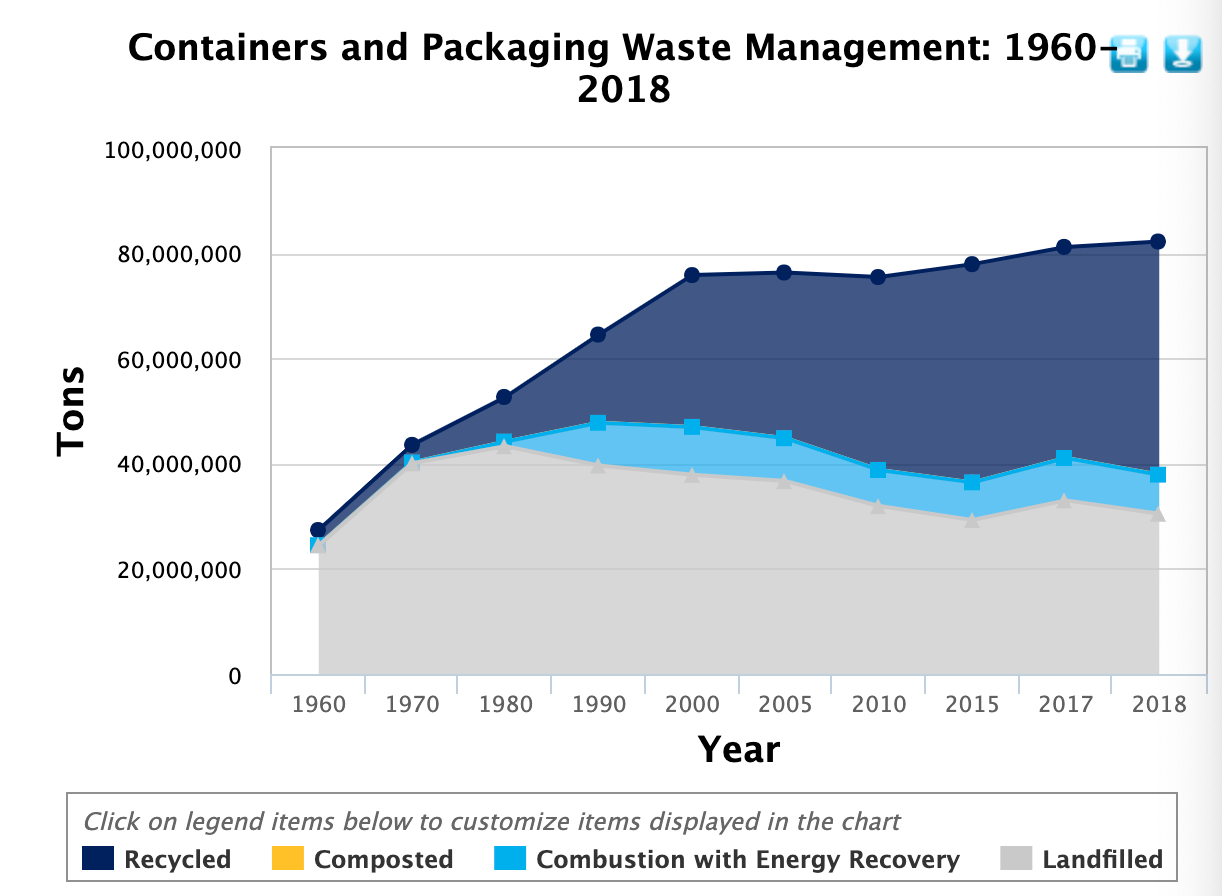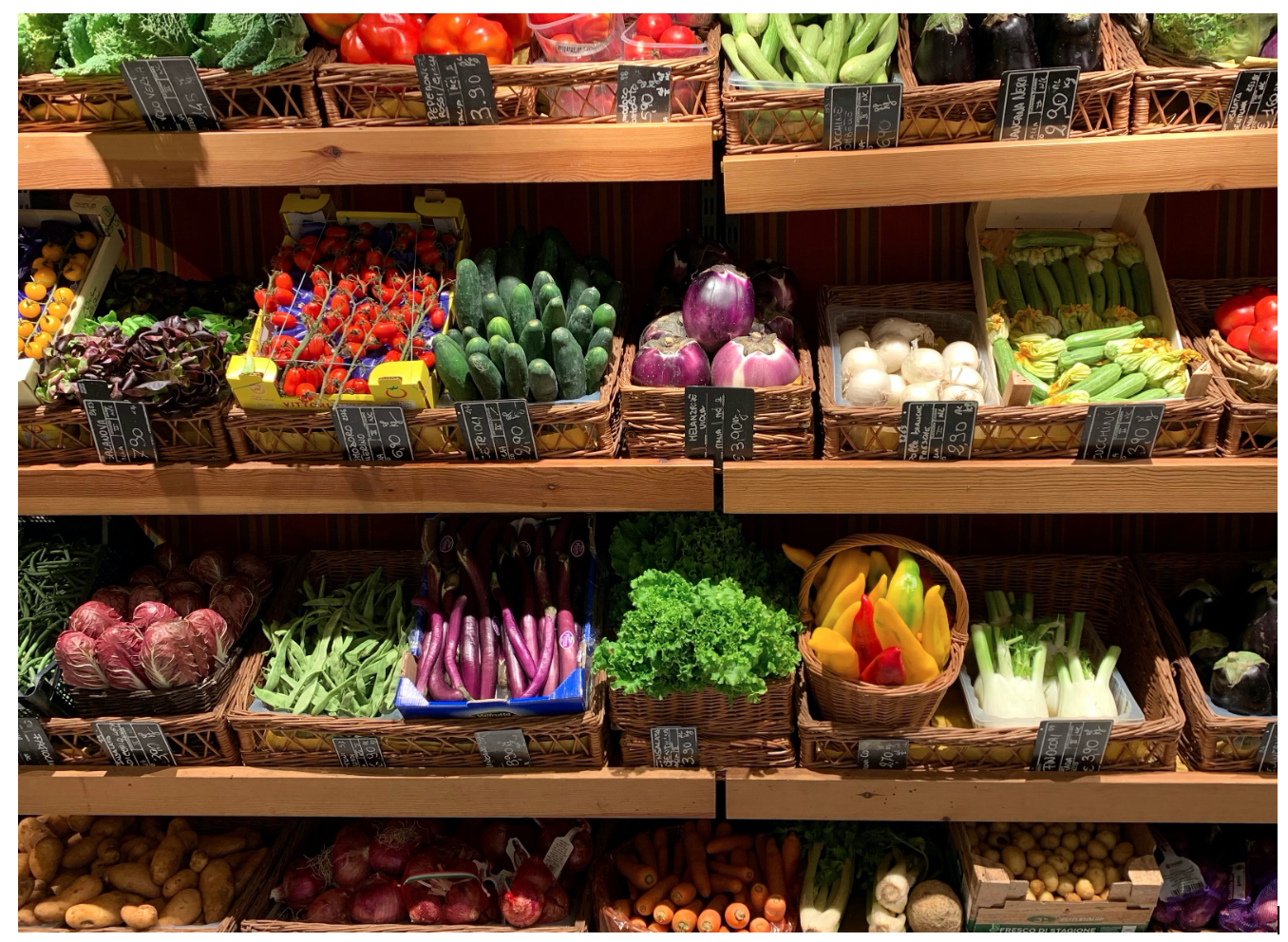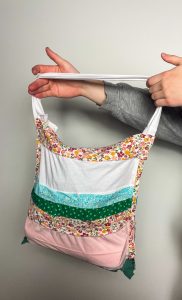When you hear “zero-waste” what do you think? Do you assume it’s unattainable or out of your reach? Through this article, I want to explain some small steps you can take in your house, apartment, or dorm to come closer to living a zero-waste lifestyle.
A zero-waste lifestyle is one that promotes reducing the amount of waste we produce, for example, single-use plastic or packaging on food and other products, and instead using products and materials in a way that preserves their value and minimizes their environmental impacts through use until the end of that product’s life cycle. That could mean recycling, composting, down- or up-cycling, but one thing I want to focus on packaging.
Packaging wraps and protects food, beverages, medicines, and cosmetics, and even more packaging is used to ship and store those products. In 2018, only 53.9% of containers and other generated packaging were recycled, and further, 30.5 million tons of packaging were added to landfills (EPA). The following chart shows the waste trends since 1960; notably, there is a downward trend of waste in the landfills since around 1980, however, a larger upward trend of the total tons of waste.
 (EPA)
(EPA)
One way to avoid this in Greenville is shopping locally at farmer’s markets which not only helps you to avoid packaged food, but also encourages consumption of less processed food which is healthier. Similarly, there are bulk food, zero waste, and refill grocery stores in which you can bring your own containers and buy your goods in bulk without waste. For example, in Greenville, South Carolina, Whole Foods and Swamp Rabbit Grocery accommodate these efforts. So now, not only can you bring a reusable bag to pack up your groceries, but you can also bring reusable containers to put your items in!
 (Zeeshan).
(Zeeshan).
Along with shopping at zero-waste grocery stores in your area, a baby step towards that goal of making grocery shopping more eco-friendly is to look for more sustainable packaging. While the city of Greenville does not recycle glass, it is the next best option in this case. Products with glass packaging are safe to reuse once washed and can be repurposed for future use. Check out what Greenville does and does not recycle at this link!
Another option which has proven highly useful during the pandemic is “Loop” an online store that sells products of partnered brands in durable and reusable packaging to which they will clean and reuse once you finish with the product. Further, they deliver in a reusable and waste-free Loop Tote! While this may sound like a sponsored blog, I am just intrigued myself by this, and it has brands that are very common, like Amazon, Starbucks, Walmart, Target, etc. (Loop).
While zero-waste may sound daunting, the deeper you search into zero-waste efforts, the more you will find. Baby steps are steps nonetheless, and changing these behaviors in such a drastic could make all the difference for large scale production and environmental impacts.
Sources:
“Containers and Packaging: Product-Specific Data.” EPA, Environmental Protection Agency, https://www.epa.gov/facts-and-figures-about-materials-waste-and-recycling/containers-and-packaging-product-specific.
“Guide to Recyclables.” Guide to Recyclables | Greenville, SC – Official Website, https://www.greenvillesc.gov/291/Guide-to-Recyclables.
“How It Works.” Loop, https://loopstore.com/how-it-works.
Junaid, Zeeshan. “Zero Waste Grocery Shopping.” Ecocart.io, https://ecocart.io/posts/zero-waste-grocery-shopping.
“Resolutions.” United States Conference of Mayors, 10 July 2019, https://www.usmayors.org/the-conference/resolutions/?category=b83aReso050&meeting=83rd+Annual+Meeting.
“Bulk Food, Zero Waste, and Refill Stores in South Carolina.” Zero Waste California, 29 Feb. 2020, https://zerowastecalifornia.org/2018/12/07/bulk-food-zero-waste-and-refill-stores-in-south-carolina/.

 (EPA)
(EPA)